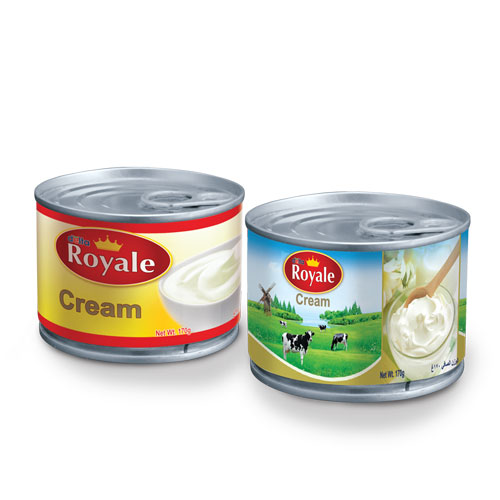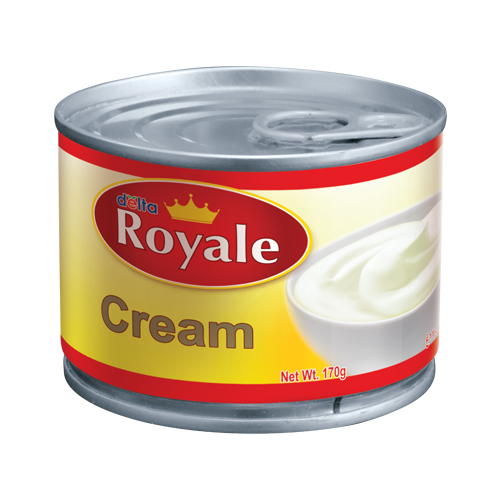Sterilized Cream is packed in cans and sterilized using the similar plant to that used for sterilized milk. In the production of sterilized cream, the fat content is standardized, then the cream is preheated to 140°C for 2 s to reduce bacterial spores. The cream is homogenized at 50-75°C using either single or two-stage processes.
The stabilizing salts are then added to prevent the ‘grainy’ texture which is a defect that occurs following sterilization. The cream is filled into cans that are seam closed.
The cans are coated on the inside with a lacquer, e.g. an epoxy-phenolic compound suitable for both acid and non-acid foods, which prevents reactions between the cream and the tinned steel of the can. Sterilization may take place in static batch retorts, agitated batch retorts or continuous retorts.
If the product is agitated during processing, it increases the rate at which the required can-center temperature is reached, thereby reducing the overall processing time.
Generally for a 170 g can, the time required for a static retort is 40 min to reach 118°C, followed by a further 30 min at this temperature to effect sterilization. In contrast, for an agitating retort, only 23 min is required to reach 118°C followed by a further 18 min at this temperature to effect sterilization.
A continuous retort requires 26 min at 119.5°C for sterilization. After sterilization the cans are cooled with chlorinated water, dried, labeled, packed in paperboard boxes and stored at ambient temperatures prior to distribution.
The cream is added as an ingredient to a large number of commercial food products including canned soup, dried bakery mixes, etc. In this context the cream serves as a source of dairy fat and its structural properties are of little importance.
There are, however, two major product groups viz., alcoholic cream liqueurs and cream cakes, desserts, etc., where the cream is both a major ingredient and a major determinant of the properties of the complete product. The major consumer cream products include coffee/table cream, whipped & whipping cream and sterilized cream.


